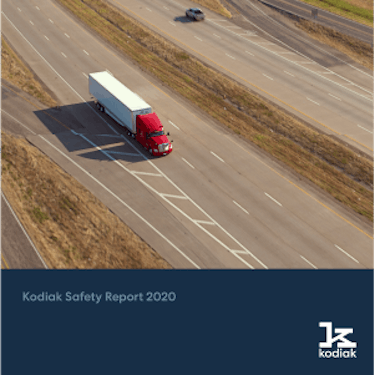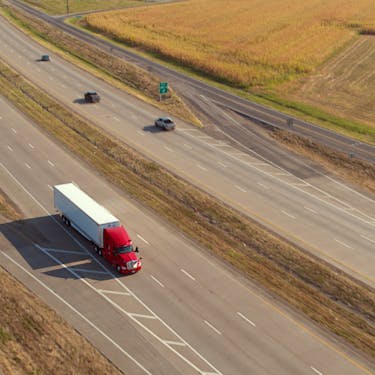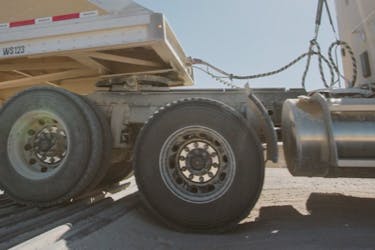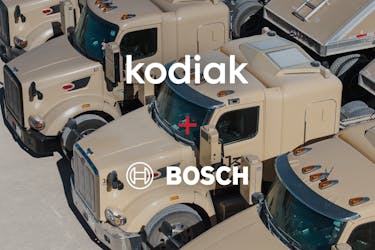
Kodiak AI’s 2020 Safety Report
|

Our experience in the self-driving industry has taught us a few important lessons. Most important is that autonomous systems need to be optimized for safety from the beginning.
Core to that mission is our strong belief about self-driving technology: that self-driving trucks, driven on highway routes, will be the first autonomous vehicles deployed on American roads at scale. This belief was built on an intuitive observation, backed by our deep experience in the self-driving industry: that relatively structured, predictable highway routes are better suited for today’s self-driving technology than complex city streets. We believe it is our combination of clear-eyed vision and experience — not rudderless ambition — that will enable us to see self-driving technology through to true, commercial deployment, and truly change the world.
We also believe that the widespread deployment of self-driving trucks will be a monumental breakthrough for consumers and drivers. By far, the most important benefit will be safety: in time, self-driving trucks will drive more safely than humans, and therefore reduce the over 4,000 truck-involved road deaths that occur each year in the United States.
But the deployment of self-driving trucks will have significant benefits beyond safety. Self-driving trucks will be able to drive 24/7 without breaks, delivering freight more quickly and efficiently and providing a boost to the overall economy. They will reduce traffic congestion, by avoiding crowded urban areas at rush hour. They will drive more efficiently, reducing emissions. They will be more resilient, helping to keep our supply chains moving no matter what happens.
While we think self-driving trucks are going to be pretty great, we also recognize that the technology remains unfamiliar to many people. As a startup that aims to put 80,000 pound vehicles on the roads without drivers, we think we have a unique responsibility to communicate clearly and directly, without resorting to marketing speak. After all, it’s one thing to believe that self-driving trucks will one day be safer than human-driven ones, and another to trust that that day has already come.

With that in mind, we are extremely proud to release the first edition of the Kodiak Safety Report. We see the Kodiak Safety Report as the next logical step in our journey: as we move to deploy our self-driving technology at scale over the next several years, we believe it’s critical that we begin the process of explaining to the general public not just how we are safely testing our vehicles, but how we’re going to prove, mathematically and in plain English, that our vehicles are comprehensively safe even without a person behind the wheel.
In the Kodiak Safety Report, we hope to demonstrate to our fellow drivers and our regulatory partners just how deeply committed we are to safety. As such, we think it’s critical to be transparent about what the Kodiak Driver can and can’t do. We hope that by articulating our vision and values, we will overcome people’s understandable skepticism and build trust with our fellow drivers. We hope that this document not only helps to explain our safety practices, but can also contribute meaningfully to the important conversation happening globally around how to define safety for self-driving vehicles.
We also think our release of the Kodiak Safety Report represents an ideal opportunity to dig a little deeper into some of the ideas and technologies that make Kodiak special. We’re therefore proud to publish this series of Medium posts that outline some of the key ideas and values that define us.
- In Introducing the Kodiak Driver, Andreas Wendel, Kodiak AI’s VP of Engineering, provides an overview of the Kodiak Driver, and how it’s built specifically to meet the needs of the long-haul trucking industry.
- In Safety, first and always, Mike Carter, Kodiak AI’s Founding Engineer, discusses our safety philosophy, and how we approach the twin challenges of both building safe technology and testing that technology safely.
- In Building a safety culture, Ryan Espinoza, Kodiak AI’s Operations Manager, writes about how our operations program contributes to ensuring safety.
- Lastly, in What comes next?, we write as co-founders about where Kodiak AI will go from here.
Safe and sound journeys,
Don Burnette, CEO & Founder

